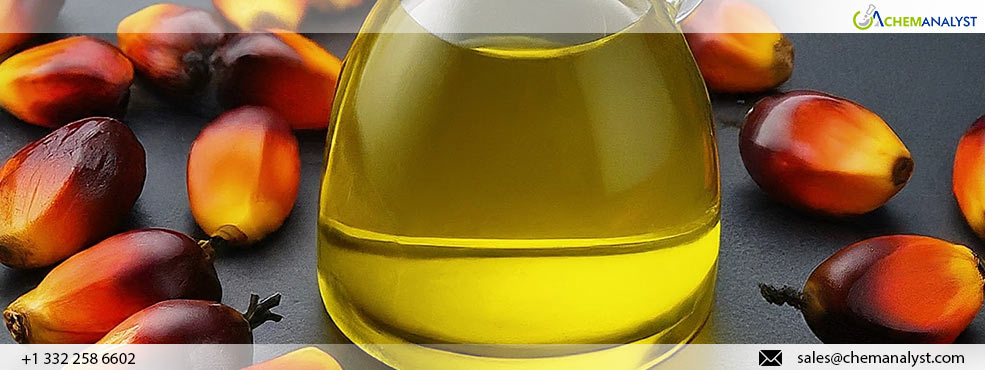Welcome To ChemAnalyst

The Malaysian Palm Oil industry is poised for growth in 2024, with crude Palm Oil (CPO) production projected to increase by nearly 1.1% to approximately more than 18 million tonnes, up from 18.5 million tonnes in 2023. This positive outlook comes despite the potential impact of severe weather conditions caused by the El Niño phenomenon.
The effects of the recent strong El Niño event, which intensified in late 2023 and early 2024, are expected to influence fresh fruit bunch (FFB) production towards the end of 2024. However, the industry's resilience and adaptive strategies are likely to mitigate these challenges.
The growth in total production for Palm Oil is attributed to two key factors: improved labor availability and more effective fertilizer application. Lower fertilizer prices compared to previous years have made it more affordable for farmers to provide necessary nutrients to their crops, enhancing growth and yield. The improved labor situation ensures that harvesting and other crucial activities are conducted efficiently and on time, which is vital for maintaining and boosting CPO production.
The latest data underscores this positive trend, showing that May's CPO production reached approximately 1.7 million tons, marking a 13% month-on-month increase and a 12% rise compared to the same period last year. Year-to-date, CPO production has grown by 9.4% year-on-year to 7.26 million tons, effectively counterbalancing the 6.7% year-on-year increase in exports, which totaled 6.3 million tons.
Moreover, the outlook for the April to June 2024 period suggests a rebound in imports by India, China, and Pakistan, driven by the improved price competitiveness of Palm Oil after price rallies in competing vegetable oils like sunflower. Various importing nations are capitalizing on the lower export prices available on the global market, following a significant reduction in their domestic stocks during 1Q24. This trend is expected to bolster higher Palm Oil imports in the coming months to replenish its reduced stocks with the aim of stabilizing the domestic market and ensuring sufficient supply. As a result, the increased demand for various vegetable oils, including Palm Oil globally, presents an opportunity for Malaysia to potentially increase its market share. Higher export volumes and potentially improved prices would positively impact Malaysia's Palm Oil industry and contribute to the country's economy.
Overall, according to ChemAnalyst and various market experts, as the industry moves forward, the balance between production growth, export demand, and global weather patterns will be crucial in determining the sector's performance. Inquiries concerning Palm Oil from key importing nations from the Asia Pacific region are likely to remain uplifted ahead of continuous rising demand arriving from key industries including the oleochemicals, food, and cosmetics sectors. This is likely to keep the exportation prices of Palm Oil to remain uplifted.
We use cookies to deliver the best possible experience on our website. To learn more, visit our Privacy Policy. By continuing to use this site or by closing this box, you consent to our use of cookies. More info.
